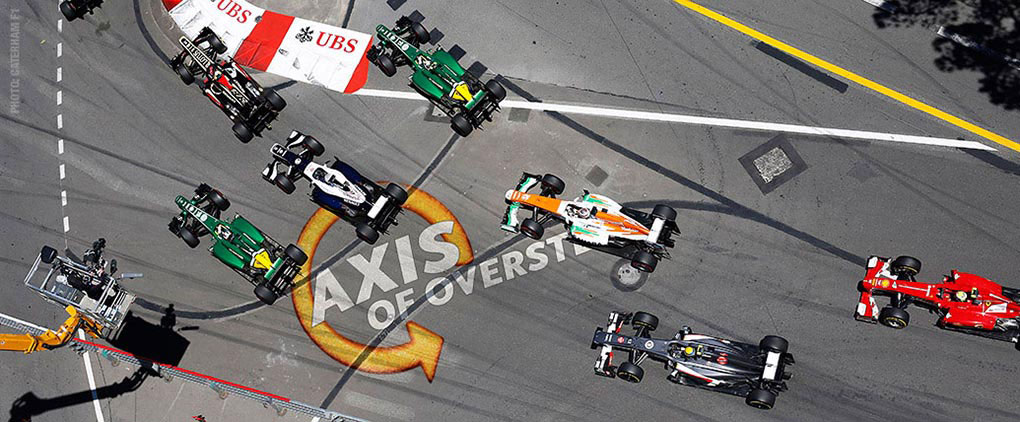Driver coach guru Ross Bentley says: your ears make you faster! The importance of using all available feedback.
Be sure to check all driver tips on Axis and subscribe to Speed Secrets Weekly for great insights from Ross' team of top go-fast coaches.
Listen Up!
What senses do you rely on when driving on a track? Vision is obvious - you look where you're going. Feel, or what really should be referred to as kinesthetic (because it includes feel or touch, plus balance and the ability to sense g-forces) is also critical. And of course, your hearing, or auditory sense. Smell is typically used only to sense problems. I hope you're not using taste while driving on the track!
 Which sense is most important? Could you drive if you were deaf? Yes, but it would be more difficult, wouldn't it? Could you drive on a track if you had no kinesthetic feedback? Actually, that's no different than using most computer games or simulators - they provide visual and auditory feedback, but not feel. So you can drive without kinesthetic feedback, but it's more difficult. Could you drive on a track if you were blind? Yep, but for a very, very short distance!!
Which sense is most important? Could you drive if you were deaf? Yes, but it would be more difficult, wouldn't it? Could you drive on a track if you had no kinesthetic feedback? Actually, that's no different than using most computer games or simulators - they provide visual and auditory feedback, but not feel. So you can drive without kinesthetic feedback, but it's more difficult. Could you drive on a track if you were blind? Yep, but for a very, very short distance!!It seems, then, that your vision is the most important, and possibly kinesthetic is second most important. I think that we use vision to get us around the track (it's the "where we go" sense), but it's kinesthetic that makes us fast (the "feel the limit" sense).
But get this: Our ears and auditory cortex can process a signal forty milliseconds faster than our eyes and visual cortex. So, when the car steps out and begins to slide, our visual picture has changed and we react, but perhaps it's the change in sound that we react to first. Interestingly, touch/feel (kinesthetic) is the slowest sense we have. Hmmm... makes you think about how we really sense the limits of the car, doesn't it?
Think about this the next time you're at the track. Protect your hearing. I said, protect your hearing! I said, PROTECT YOUR HEARING! You may think that standing around a track, especially if there are only street cars being driven, won't impact your hearing. Over time, it will - unless you protect your hearing.
And take time to drive just listening to the car's engine sound, the wind passing by, the transmission sounds, feedback from the brakes, and the tire noise. The car is talking to you. Are you listening? You may be surprised just how much better you drive if you focus on what you hear.
Ross Bentley
For more of Ross' writing, along with articles by other famous and not-so-famous contributors, go to www.speedsecretsweekly.com. He can be reached at ross@speedsecretsweekly.com.



What?
ReplyDeleteBut sound travels slower. Well 4ms to travel 1.5m and 40ms it would make 14m.
ReplyDeleteBest simulators do provide very good FFB effects on the wheel which to me atleast is essential.
ReplyDeleteBTW theres no super technique or lesson to teach someone 'normal' to go fast. Best drivers simply adapt to the car immediately because they're born with a talent to really feel the car have have the proper senses for it. The rest is just techniques that can be used and car setup to extract the full potential.
ReplyDelete